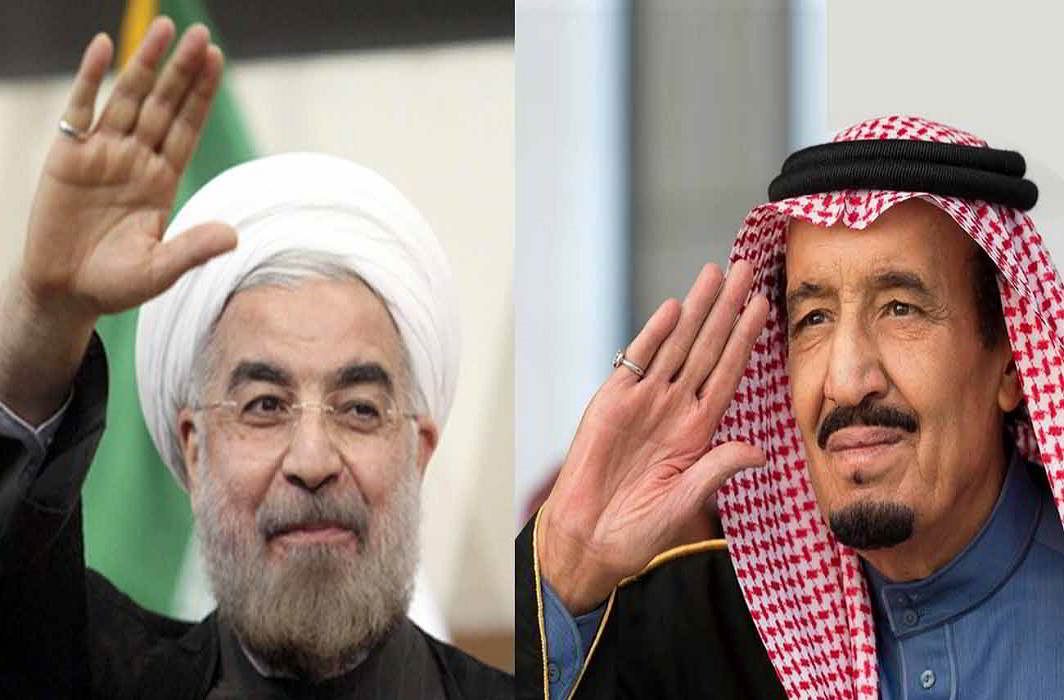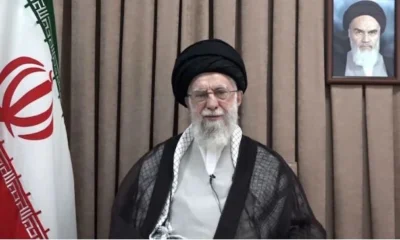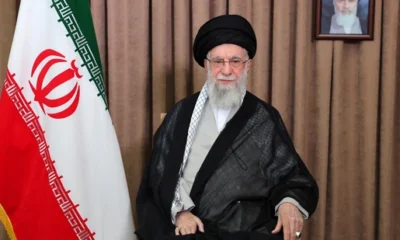[vc_row][vc_column][vc_column_text]Quiet diplomacy on to bring the two warring countries closer
By Abu Turab
The advent of Donald Trump as the 45th President of United States has been accompanied by some interesting diplomatic moves in the Middle East, with arch rivals Saudi Arabia and Iran showing early inclination of rebuilding bilateral relations.
On January 25 Kuwaiti Emir Jabel al-Ahmed al-Sabah sent a “special message” to Iranian President Hassan Rouhani through his Foreign Minister. This was probably the outcome of early Riyadh-headquartered Gulf Cooperation Council’s (GCC) efforts to open channels of dialogue to bring the two countries together, says the credible news website Al-Monitor.
On December 1, 2016, Kuwait’s Deputy Foreign Minister Khaled al-Jarallah was quoted as saying that GCC was trying to send a message to Tehran for inviting both countries to dialogue. He also said that Kuwait will be transmitting the message to Iran and that “contacts with Iran are ongoing to set a convenient date to divert that message.” Other members of the regional Council are Qatar, Bahrain, United Arab Emirates and Oman.
A Tehran-based Press TV report says that Iranian President Hassan Rouhani, while receiving the Kuwaiti Foreign Minister, said that “the power and capabilities of Iran have always been aimed at safeguarding regional security and stability and supporting neighbours.” He also reiterated Tehran’s commitment to supporting “any measures” that would promote regional stability and security.
On January 14, Iraq’s Foreign Minister Ibrahim al-Jaafari, while speaking to Islamic Republic of Iran Broadcasting (IRIB), disclosed that he has been carrying out certain mediatory measures since last year to help improve relations between Iran and Saudi Arabia. He further said that any crisis in the Iran-Saudi relations affects Iraq as well and a rapprochement between the two countries would benefit Iraq.
He disclosed that he has carried oral messages between Iranian and Saudi officials in the past few months and added that his country would make efforts to bring the positions of Tehran and Riyadh closer.
Ties between Tehran and Riyadh took downturn after a deadly human crush occurred during Hajj rituals in September 2015. Some 465 Iranians were among 4,700 killed in the tragedy. Iranians’ violent reaction to Saudi Arabia prosecuting Shia cleric Sheikh Nimr al-Nimr, was witnessed when protesters set fire to some portion of the Saudi Embassy in Tehran on January 2, 2016. Similar protest was also reported from Mashhad. Saudi Arabia unilaterally severed its diplomatic ties with Iran after the protests.
A large number of pilgrims from different countries were still being claimed by Saudi authorities as ‘missing.’ Over a hundred Indian pilgrims were killed and 32 remained missing in the tragedy.
In one analysis, Al-Monitor says that on January 17 Iranian president Hassan Rouhani hailed the efforts of at least a dozen countries, including Iraq and Kuwait for offering to mediate between Iran and Saudi Arabia. He expressed his willingness to be on good terms with everyone, especially the Gulf states and Saudi Arabia. Earlier, Iran’s secretary of the Supreme National Security Council Ali Shamkhani and Foreign Minister Mohammad Javad Zarif had also expressed their desire to renew relations with Saudi Arabia.
The first breakthrough in Tehran-Riyadh relations was witnessed on September 28, 2016 when the Organization of Petroleum Exporting Countries (OPEC) agreed to curb oil production during the meeting in Algiers. The agreement resulted in the largest cut in oil production since 2008 forcing considerable price rise in the international market.
The agreement was possible only through a major Saudi concession which exempted Iran from capping production. As OPEC’s dominant producer, the Saudi’s wield enough clout to provide such a concession.
Recently on January 10, Head of Iranian Hajj Mission Syed Ali Qadi Askar announced receiving an invitation via Saudi Arabia’s consulate in New York to hold meetings to discuss plans for this year’s Hajj.
Iran had boycotted Hajj 2016 for not getting security guarantee of their nationals after the tragic death of its 465 nationals in the Hajj stampede 2015. Iran claimed the total number of Hajj pilgrims killed in the tragedy were 4,700 while Saudi authorities gave the total number of deaths at only 700. Earlier, 11 Iranian pilgrims were among more than 100 killed in a massive construction crane collapse in Mecca’s Grand Mosque.[/vc_column_text][/vc_column][/vc_row]


 LATEST SPORTS NEWS19 hours ago
LATEST SPORTS NEWS19 hours ago
 India News20 hours ago
India News20 hours ago
 India News19 hours ago
India News19 hours ago
 India News19 hours ago
India News19 hours ago
 Latest world news13 hours ago
Latest world news13 hours ago
 India News11 hours ago
India News11 hours ago















